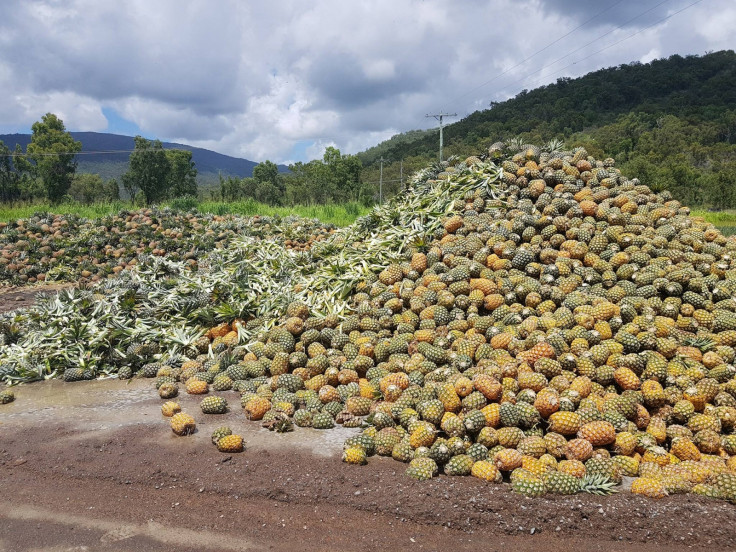100 tonnes of Australian pineapples have been left to rot because American company wanted cheaper imports

KEY POINTS
- Farmers say cannery should open early to process glut of pineapples grown during summer.
- The rotting fruit is estimated to be worth A$300,000 to the local economy.
Nearly 100 tonnes of pineapples are currently rotting in Australian fields due to a disagreement between Queensland farmers and a multinational producer.
Pineapple growers NQ Paradise Pines posted a picture of the shocking waste to their Facebook page. The image has since been shared over 20,000 times by concerned Australians.
The company claims that canned goods producer Golden Cirlce, owned by American firm Kraft Hines, refuses to use locally grown pineapples and chooses to import cheaper fruit from abroad. The resulting oversupply has led to stockpiles of pineapples going bad in the region's fields.
Their post read: "There is a shortage of Australian canned pineapple starting January, lasting up to 3 months. Golden Circle did not open the cannery even though the markets are bursting with over supply and mountains like this are going to waste because they are worth nothing... If you see any imported canned pineapple it is not because Aussie growers lack capacity to supply it is because Golden Circle does not support the Australian Pineapple industry."
The picture was taken on 9 January at a farm near Rollingstone in Queensland, Australia. The waste is estimated to cost A$300,000 ($236,000, £175,000) to the local economy.
NQ Paradise Pines General Manager Robert Richardson says the internationally-owned cannery has failed to honour a pledge to open early to process a glut of pineapples grown during the summer months.
"Golden Circle believe they support the industry — most pineapple in Australia is grown in Queensland, but when you're producing 100,000 tonne plus and you're having 20,000 processed then you either have to lose growers and reduce the size of the industry or find new ways to sell the fruit," he told local media.
"If you want Australian industries to survive, you have to buy Australian-made.






















